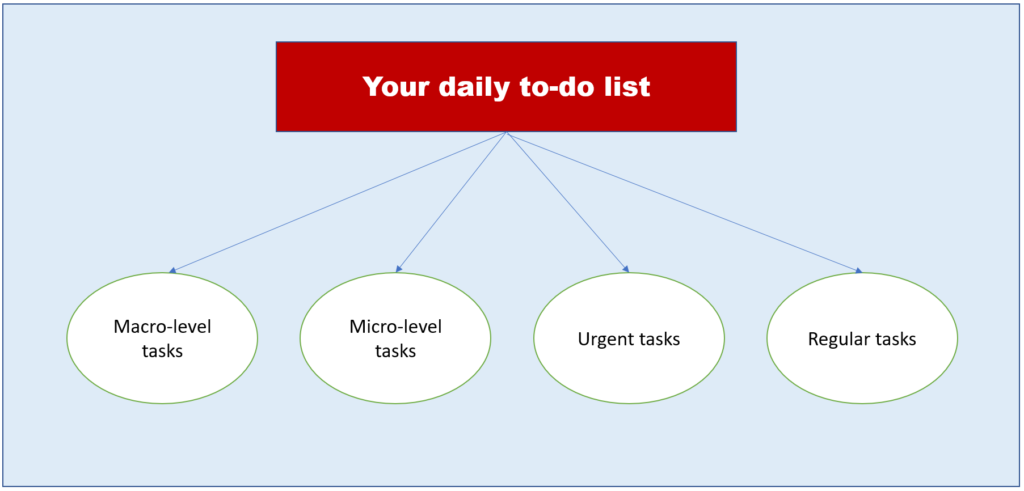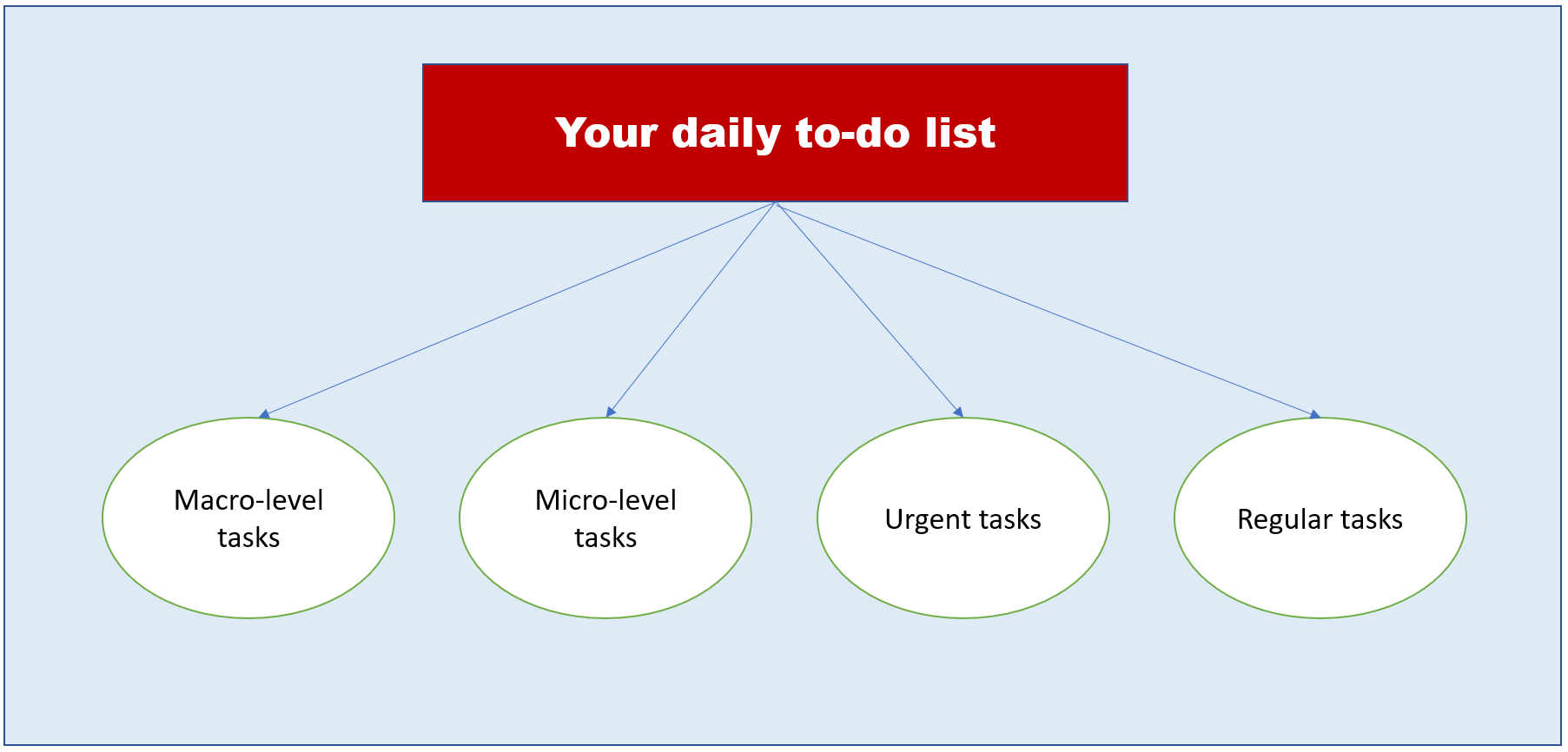Six steps that will help boost a feeling of daily balance & progress

After years of moving towards my goals at the sort of speed even a snail would be embarrassed by, I incorporated a new approach into my daily routine: Prioritisation.
With the enthusiasm of a circus chimp learning to ride a unicycle, I dived into the next few years applying this new trick. What I eventually realized is that prioritizing my daily to-do tasks doesn’t nearly solve all of my productivity issues and often I’m left with a feeling that I’m not quite winning the day.
It can be pretty frustrating to feel like you’ve been busy — VERY busy, in fact — but have so little to really show for it.
“It’s not so much how busy you are, but why you are busy. The bee is praised. The mosquito is swatted.”
― Mary O’Connor
At the beginning of the pandemic, I decided to return to first principles since, like many, I saw the global lockdown as an “opportunity” to refocus on my artistic and entrepreneurial goals. The first thing I did was to add another activity to my daily productivity armor. I began reviewing my days as often as possible.
This approach was inspired by Matthew Dicks’ book, Storyworthy in which he suggests spending 5 minutes trying to identify one story-worthy moment of your day. This habit forces you to be cognizant of how you spend your days. I extended this advice to my to-do list.
Baking this one act into my daily routine revealed how inefficient I was being. I once went beyond 5 minutes and tried to account for every hour of the day then reviewed it in the evening. I kept this up for about a week. What became clear was how so easily I was distracted and also that I was always in reaction mode. I was dealing with urgent to-do items on my list but rarely the important ones.
Urgent versus Important tasks
Urgent tasks are those that have a deadline. In most cases, that deadline is in your rear-view mirror and you’re playing catch up. Like sorting out your tax. Important tasks are important because they meet your value system or move you towards your life goals. An example, for me, would be writing every day because I wish to make a living from my work.
While urgent tasks are easy to identify (they keep smacking you in the face until you make a plan to deal with them), important ones require a far more nuanced approach.
Return to First Principles
Identifying Important tasks requires a deep dive into answering questions like What makes me happy? What are my Life goals? What is my ‘why’?
As John Mayer tweeted in 2014:

You need to know how your daily to-do tasks support your life goals and value system.
Returning to First Principles helps to understand your pattern. It will also help you to answer the following questions:
- What makes you happy on a macro level? If you take “macro-level” to mean one’s overarching ambitions and value system.
Value system here refers to things like how important is it to you that you are a good friend, a good father, a good wife, etc. Brian & Sangeeta Mayne’s “Life Mapping” and “The Conquest of Happiness” by Bertrand Russell are two books that can help with that. - What makes you happy on a micro level? Micro-level daily tasks tend to be a day-to-day manifestation of your long-term life goals. One of the things that became clear to me was that even when I ticked things off that were important to my life ambitions, I was always unhappy if I felt I did it at the expense of not spending quality time with my kids, doing some physical exercise or learning something new.
NOTE: Spend a day, a week, or a month figuring out the answer to the two questions above. It’s pointless climbing a ladder only to find that it’s leaning against the wrong wall.
- Urgent tasks. These are a fact of life. Annoyingly, when you look back, you probably won’t remember the stress and time these goals demanded of you. However, we all know that while urgent tasks hold very little long-term value, they wield the power to have a long-term negative impact if you don’t address them sooner rather than later.
- Next, decide as a general rule how much time you’re willing or need to spend on each macro-and micro-level task. Urgent tasks can only really be determined as and when they show up.
NOTE: What I’m writing about here not only overlaps with the Eisenhower technique/matrix of prioritization of tasks (to learn more read Amardeep Parmar’s article) but is intended to extend this concept further to how we define what we consider ‘urgent’ versus ‘important’.
Winning The Day — an Approach
“Losers have goals. Winners have systems.”
– Scott Adams, creator of the Dilbert comic strip
First, it’s probably worth accepting upfront that not everything you want to get done can make your daily to-do list which shouldn’t have more than 8–10 tasks on it.
- Start with a to-do list for the week ahead. Separate urgent tasks from the life-impacting activities which fit into your life goals and value system. Then work backward.
- You probably don’t spend enough time planning your day. Make sure you have one task that addresses your long-term goals (macro-level tasks) e.g., entrepreneurial or creative to-dos.
List two to three tasks (no more) that fulfill your daily happiness goals (micro-level tasks) such as time with kids, exercise, 15 minutes of French, etc.
A good question to ask before and after making your daily to-do list is: What, on my to-do list, would leave me with a real sense of achievement? - Make room for regular tasks: List 2 to 4 tasks on your to-do list that don’t fall into any of the categories above. Be very specific e.g., reply to 3 emails, change printer ink, spend 20 minutes on phone to my accountant.
- Timebox. Decide how long you will spend on each to-do list item. Make sure your macro goals i.e., the long-term-impacting tasks get focused time of about 3 hours. To understand what I mean by focused time read Cal Newport’s book, Deep Work: Rules for Focused Success in a Distracted World. Give short but satisfactory time to your micro (daily important) goals.
Your to-do list will live and die by whether you get this right.
Where there’s a clash between urgent and your most important goals (micro-and macro-level tasks). You’ll need to make a sacrifice. Start by listing 3–5 of your key urgent tasks for the day. These are usually tasks you’ve been avoiding for a while. Then filter said list down to just one. Ideally, you should now have one of each type (an urgent and a macro task). If you can’t dedicate 2-3 hours each to the two items. Pick just one. Usually the urgent one. Get it out of your in-tray! You will feel better for it.
The secret, I’ve had to learn the hard way (still learning), is to not let things (usually your regular tasks) get to the point that they become urgent. - Outsource your tasks if you can — usually the urgent or regular ones e.g., house cleaning. Your time literally has a money value!
- Spend some time reviewing your day. In the evening or first thing the following morning.
With a little luck, as you consistently practice the above, you will begin to feel you’ve got most of your bases covered. In pragmatic terms, I think this is what we are all hoping for when we think of balance.
Lastly, never forget to be grateful that you have a stab at another day no matter how badly the last one went.





